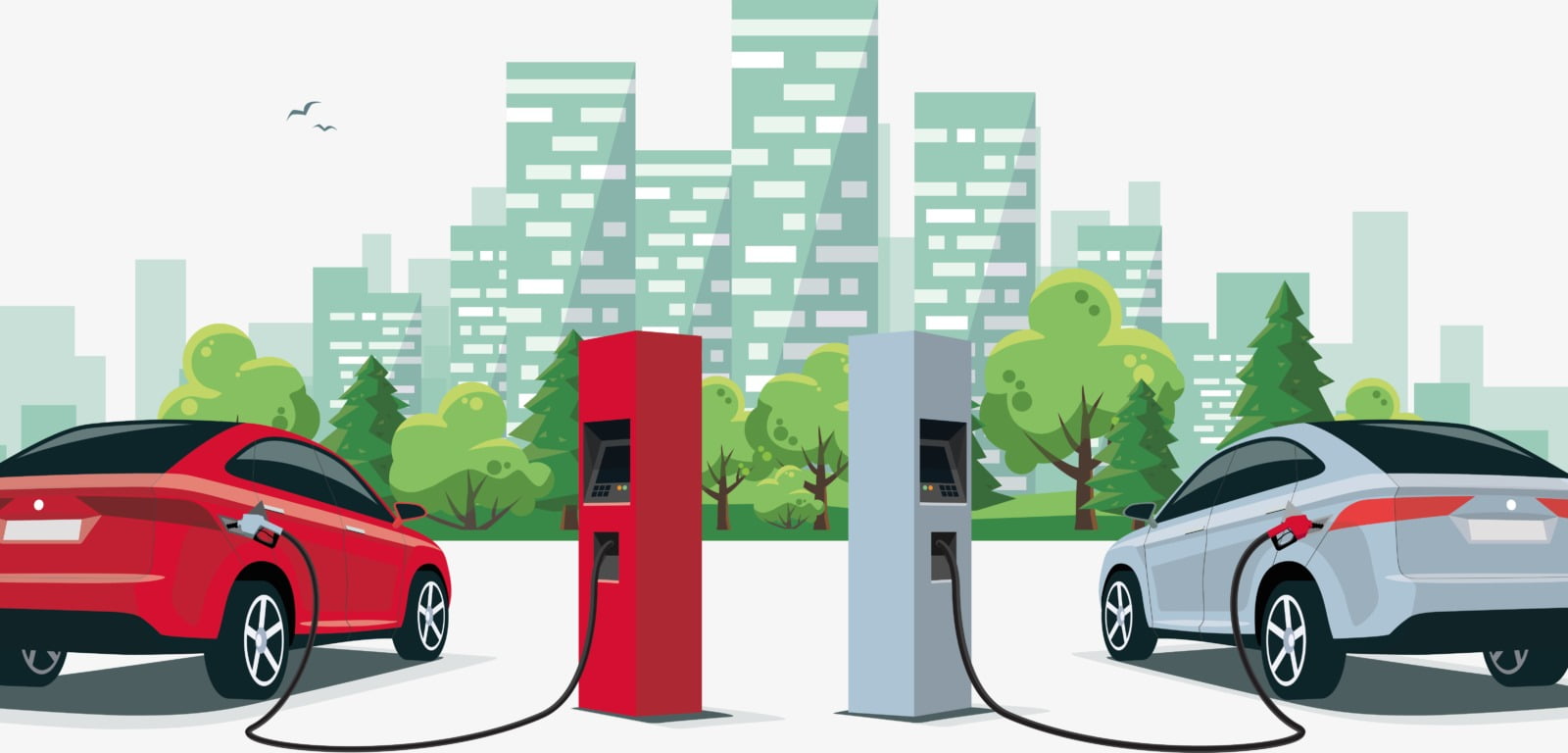Explore the future of transportation with EVs and synthetic e fuels. Discover their advantages, challenges, and sustainability.
In the pursuit of a sustainable future, the transport sector holds a crucial position in curbing greenhouse gas emissions. As the world seeks cleaner alternatives to traditional fossil fuels, two dominant contenders have emerged: electric vehicles fueled by electricity and internal combustion engine (ICE) vehicles powered by synthetic e-fuels. Both technologies present distinct advantages and challenges, sparking a debate over which holds the solution to a sustainable transport future. Let’s explore the intricacies of each, supported by pivotal statistics and insights.
Electric Vehicles (EVs): Empowering Progress
Advantages:
– EVs are lauded for their eco-friendliness, emitting zero tailpipe emissions, thereby significantly mitigating air pollution, especially in urban settings.
– According to research by the International Council on Clean Transportation, they emit 54% to 68% fewer greenhouse gases than gasoline vehicles throughout their lifespan, even when factoring in emissions from electricity production.
– They also boast greater energy efficiency, converting a higher proportion of grid energy into motion.
– As the electricity generation mix shifts towards renewable sources like solar and wind, the carbon footprint of EVs continues to diminish. The International Energy Agency (IEA) noted that renewables accounted for 28% of global electricity generation in 2022, with further growth projected.
Disadvantages:
– Despite their benefits, EVs encounter challenges such as range anxiety, especially for long trips, as charging infrastructure remains underdeveloped in certain regions.
– A 2023 survey by McKinsey & Company revealed that 41% of potential EV buyers cited range anxiety as a major concern.
– Additionally, charging times for them can be significantly longer than refueling a gasoline vehicle.
– Environmental considerations also arise from battery production and disposal, while grid stability influences their reliance on electricity.

Synthetic E-Fuels: Rethinking the Conventional
Advantages:
– E-fuels provide a synthetic substitute for traditional fuels like gasoline and diesel, produced using renewable electricity and captured carbon dioxide.
– This enables existing ICE vehicles to run on a carbon-neutral fuel source, potentially prolonging the lifespan of current infrastructure and vehicles.
– Porsche’s research indicates that e-fuels can achieve an 85% reduction in well-to-wheel greenhouse gas emissions compared to fossil fuels.
– Refueling times for e-fuels are akin to gasoline, making them suitable for long trips or areas with limited charging infrastructure.
Disadvantages:
– E-fuels face challenges in their production process, which currently requires significant energy input.
– The overall environmental impact of e-fuels heavily relies on the source of electricity used.
– A 2022 report by the International Renewable Energy Agency (IRENA) highlighted the need to enhance e-fuel production efficiency to minimize additional energy requirements.
– Moreover, the widespread availability of e-fuels is limited, and their cost generally exceeds that of conventional fuels.
– Adapting existing engines for optimal e-fuel use may also be necessary.

The Winner of the Contest?
The debate between EVs and e-fuels is nuanced and unlikely to yield a universal solution.
For urban commuting and short-distance travel, EVs excel due to their efficiency and expanding charging infrastructure.
– Global electric car sales surpassed 10 million in 2022, according to the IEA, a trend set to continue.
For long-distance travel and heavy-duty vehicles, e-fuels provide a more viable option in the short term, offering familiar refueling experiences and prolonging the life of current infrastructure for trucks and airplanes.
The Optimal Scenario:
– A future powered by a blend of both technologies.
– Ongoing advancements in battery technology and renewable energy generation will enhance the appeal of EVs.
– Concurrently, research and development in e-fuel production can lower costs and ensure a genuinely sustainable source.
Ultimately, the victor in the race between EVs and e-fuels will hinge on technological advancements, infrastructure expansion, government policies, and consumer preferences. Both technologies offer promising paths toward a cleaner transport future, underscoring the necessity for continuous innovation and collaboration in the pursuit of sustainability. For more click here.

FAQs related to Electric Vehicles (EVs) and Synthetic E Fuels
1. What are electric vehicles?
Electric vehicles, or EVs, are vehicles that run on electricity stored in batteries. They produce zero tailpipe emissions, making them environmentally friendly.
2. How do electric vehicles (EVs) differ from traditional gasoline cars?
Electric vehicles use electric motors powered by batteries, while traditional cars use internal combustion engines fueled by gasoline or diesel. EVs are more energy-efficient and produce no emissions during operation.
3. What are synthetic e-fuels?
Synthetic e-fuels are fuels produced using renewable electricity and captured carbon dioxide. They can be used in existing internal combustion engine vehicles, offering a potential carbon-neutral alternative to traditional fuels.
4. What are the benefits of synthetic e-fuels?
Synthetic e-fuels can help reduce greenhouse gas emissions from the transportation sector. They can be produced using renewable energy sources and can be used in existing infrastructure, making them a potential transitional fuel.
5. Which is better for the environment, electric vehicles or synthetic e-fuels?
Both electric vehicles and synthetic e-fuels have environmental benefits. EVs produce zero tailpipe emissions, but their environmental impact depends on the source of electricity used for charging. Synthetic e-fuels can reduce emissions from existing vehicles but require energy-intensive production processes.
More From TalkBoutCars
- 2024 Honda CB125R: The Ultimate Blend of Style, Efficiency, and Eco-Friendly Performance
- Introducing the New Nissan Kicks SUV at the New York Motor Show 2024
- Embrace the New Era: Meet the MG Cyberster – Where Innovation, Passion, and Thrill Merge into One Unforgettable Ride
- The All-New Kia K4 Sedan: A Paradigm Shift in Automotive Design
- Feel the Excitement: Introducing the 2024 Mitsubishi Pajero Sport!

Leave a Reply